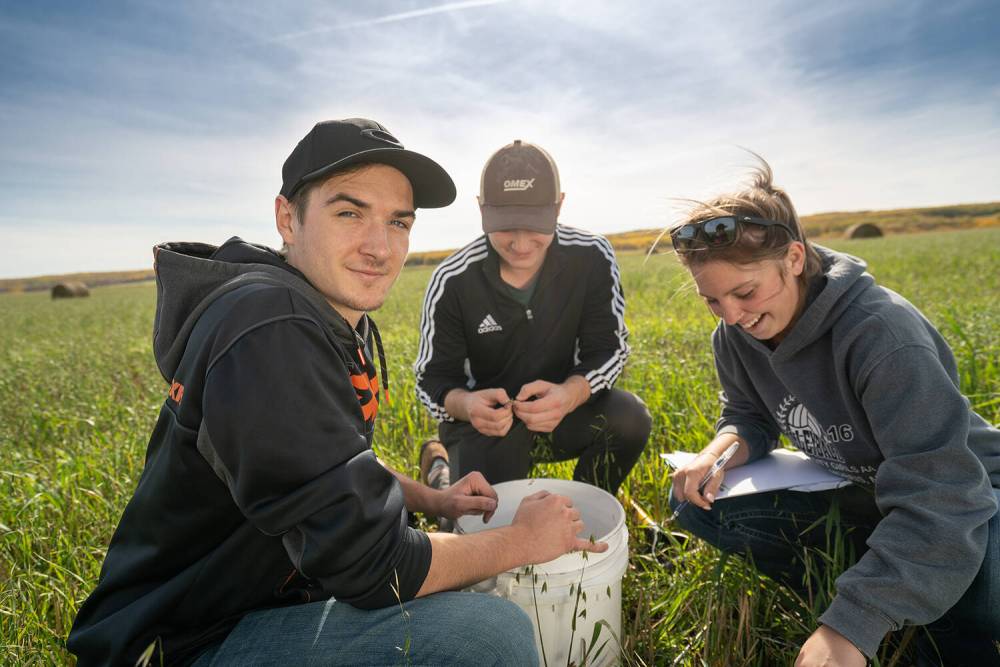Grant supports ACC’s soil health research
Advertisement
Read this article for free:
or
Already have an account? Log in here »
We need your support!
Local journalism needs your support!
As we navigate through unprecedented times, our journalists are working harder than ever to bring you the latest local updates to keep you safe and informed.
Now, more than ever, we need your support.
Starting at $15.99 plus taxes every four weeks you can access your Brandon Sun online and full access to all content as it appears on our website.
Subscribe Nowor call circulation directly at (204) 727-0527.
Your pledge helps to ensure we provide the news that matters most to your community!
To continue reading, please subscribe:
Add Brandon Sun access to your Free Press subscription for only an additional
$1 for the first 4 weeks*
*Your next subscription payment will increase by $1.00 and you will be charged $20.00 plus GST for four weeks. After four weeks, your payment will increase to $24.00 plus GST every four weeks.
Read unlimited articles for free today:
or
Already have an account? Log in here »
Hey there, time traveller!
This article was published 15/02/2023 (1063 days ago), so information in it may no longer be current.
A $1.7-million grant from the Weston Family Soil Health Initiative will support Assiniboine Community College’s efforts to improve soil ecosystems in western Canadian agriculture.
The five-year project, which is also supported by Farm Management Canada, Manitoba Forage and Grasslands Association and Manitoba Association of Watersheds, will use education and outreach to advance soil health and climate-conscious practices.
“Soil is foundational to long-term viable agriculture and food production, and healthy soil can help mitigate climate change. This project will bring together like-minded producers to implement practices that will shape the way we farm and produce food,” said Tim Hore, dean of the Russ Edwards School of Agriculture and Environment at ACC.

The project follows on the heels of predictions for a growing global population and the increased demand for food that comes along with it. By 2050, the global population is projected to reach 10 billion people, and global food demand is predicted to increase by 56 per cent.
The funding will help ACC continue the development and implementation of soil practices that nurture a sustainable future for agriculture and food production.
The announcement of the project also coincides with ACC’s celebration of agriculture and food production event this morning in support of Canada’s Agriculture Day.
“Farmers continue to make progress in preserving and nurturing soil health and yet still have many uniquely regional, technical and economic obstacles to overcome,” said project lead Brent VanKoughnet. “This project will support and elevate the ingenuity of farmers to accelerate the development and adoption of increasingly more targeted and effective beneficial management practices.”
One such local farmer the project will work with is David Rourke, of Rourke Farms, an organic grain farm near Minto. Rourke said that over the decades, methods for the best farming practices have changed, shifting from zero-till practices to what he calls a “zero-till plus” method that involves growing plants alongside crops. This method helped to increase the health of the soil as well as tackle carbon in the air that is contributing to climate change.
“The more plant growth and the longer the plants grow on your field, the more carbon you can take out of the atmosphere and put in the soil,” Rourke said in an interview with the Sun. “There’s a fine balance between producing cash crops and producing these cover crops, which their sole goal is to build soil quality and cash crops that we need to feed people and ourselves.”
Ultimately, the goal for the research and support for different farming practices seeks to help minimize the negative side-effects that food production can have, like excessive water use and soil erosion, said Rourke. ACC’s project focuses on increasing diversity and crop rotations to improve the quality of soil.
“We’re trying to produce as much food, feed as many people, for the next 1,000 years,” Rourke says. “This project is tackling how we feed people and increase the resiliency of our soils.”
» gmortfield@brandonsun.com
» Twitter: geena_mortfield
